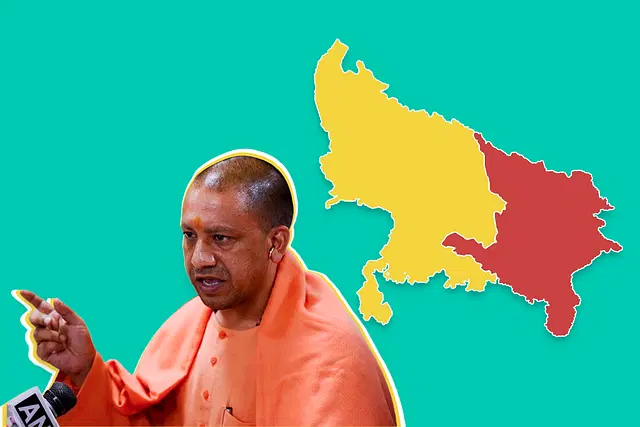On Tuesday, 30 July, the Uttar Pradesh Vidhan Sabha passed the Prohibition of Unlawful Conversion of Religion (Amendment) Bill 2024. The bill, introduced on Monday under the leadership of Chief Minister Yogi Adityanath, proposes several amendments to strengthen the existing Prohibition of Unlawful Conversion of Religion Act 2021.
Purpose of the Bill
The new bill aims to make the law more stringent and comprehensive. It addresses the limitations of the current law, which is deemed insufficient to handle cases involving vulnerable groups effectively. The amendments focus on preventing and controlling religious conversion and mass conversion of minors, disabled individuals, mentally challenged persons, women, and those belonging to Scheduled Castes (SC) or Scheduled Tribes (ST). Additionally, the bill seeks to resolve various legal challenges that have arisen in past cases. It aims to counter organized conversions with increased fines, penalties, and stringent bail conditions.
Broader Scope for Filing Complaints
Previously, only relatives of the victim could file a First Information Report (FIR) under the act. The new amendment allows “any person” to report a violation, significantly widening the scope for filing complaints. This change empowers more individuals to take action against unlawful conversions, ensuring broader protection and easier access to justice for affected individuals.
Increased Penalties for Forced Conversions
If someone forces or instigates another person into conversion through threats, promises of marriage, or other means, they face a minimum imprisonment of 20 years, which can extend to life imprisonment. The same punishment applies to those who conspire or induce minors, women, or others into trafficking or selling them.
Compensation for Victims
The fine collected from such cases will be directed towards covering the victim’s medical expenses and rehabilitation costs, ensuring they receive necessary care and support. Furthermore, the court has the authority to mandate additional compensation from the accused, which can amount to as much as Rs 5 lakh, on top of the imposed fine.
Stricter Punishments for Funding from Foreign or Illegal Sources
To deter funding of religious activities from foreign or illegal sources, the bill introduces a minimum imprisonment of seven years, which can be extended up to 14 years. Additionally, it imposes a minimum fine of Rs 10 lakh to discourage such funding practices and ensure strict penalties for violations.
Protection for Vulnerable Groups
For violations involving minors, disabled or mentally challenged persons, women, or individuals from SC/ST backgrounds, the bill proposes up to 14 years of imprisonment, up from 10 years in the existing act. They have increased the minimum fine for such cases from Rs 25,000 to Rs 1 lakh.
Harsher Penalties for Mass Conversions
The bill raises the jail term for mass religious conversions from three to 10 years to seven to 14 years. The authorities have also increased the fine from Rs 50,000 to Rs 1 lakh.
Conversion Conditions and Bail Regulations
To make the law more stringent, the bill outlines specific conditions for granting bail. The prosecution must argue against the bail plea and convince the sessions court that the accused is not guilty and will not cause harm if released on bail.
Conclusion
The Prohibition of Unlawful Conversion of Religion (Amendment) Bill 2024 aims to address the gaps in the existing law and provide better protection against unlawful conversions, especially for vulnerable groups. With stricter penalties and broader provisions for reporting and compensation, the bill seeks to ensure justice and deter organized conversion activities in Uttar Pradesh.
ALSO READ: Yogi Adityanath Sends a Message to Rivals with Pallavi Patel Meeting
